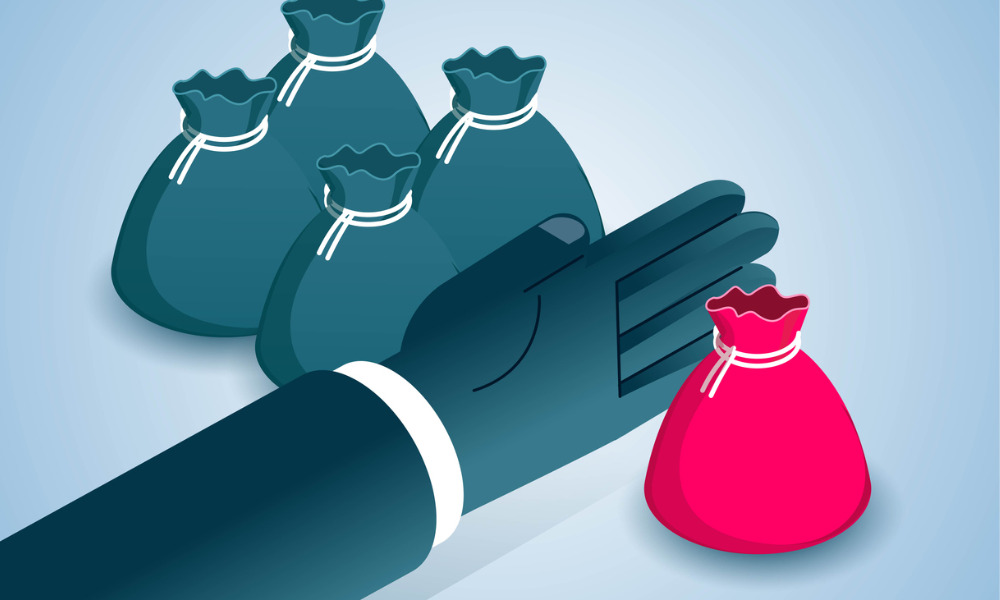Significant increases seen in the incomes of the top earners were impelled by generous gains in wages

Canada’s top 1% taxpayers saw their incomes spike by 9.4% annually to reach $579,100 in 2021, while those in the bottom half saw their average incomes drop by $1,400 to end up at $21,100 during the same period, according to the national statistics agency.
“This occurred in the context of COVID-19 pandemic restrictions easing, many government benefit programs winding down, the labour market recovering, and the Canadian house prices and stock market indexes increasing in 2021,” Statistics Canada said.
The significant increases seen in the incomes of the top earners were impelled by generous gains in wages, StatCan said.
“People in the top 1% saw their average wage and salary income rise by 12%, while those in the top 0.1% saw an increase of 24.6% and those in the top 0.01% saw an increase of 34.5%,” StatCan reported.
Women are seeing an increased presence in Canada’s top income groups, with the demographic accounting for 26.1% of the top 1% of income tax filers, up from 25.4% in 2020.
“The share of women in the top 1% has been increasing steadily since this series started in 1982, when the share was 11.4%,” StatCan said.
Despite recent market slowdowns, the income needed to buy a home in major cities remains staggeringly high. 📈
— Canadian Mortgage Professional Magazine (@CMPmagazine) October 27, 2023
Read more: https://t.co/KIcVrHiZ1m#Affordability #HousingMarket #MortgageIndustry #MortgageBroker
Financial worries cut across every demographic, survey suggests
Despite the income gains seen over the past few years, Canadians of all demographics still feel the pain of inflation, according to a recent study by Advocis.
“At a time of heightened economic uncertainty, a disparity in savings is resulting in a heightened period of hardship for Canadians, especially those with lower incomes,” Advocis said.
“The increased burden of living expenses and heightened interest rates have resulted in a financial challenge, as the weight of debt has become even more significant for Canadian households,” added Julie Martini, COO of Advocis. “Additionally, the majority of Canadians have not experienced a proportional increase in their incomes to match the escalating costs of everyday purchases.”
The Advocis poll found that 40% of financial advisors have clients who were late in making their monthly credit card or mortgage payments, while 47% had clients who needed to get loans to purchase or refinance their cars.
Another 56% said that they had clients who have reached out as they are having difficulty adjusting their financial plans to the current environment.



